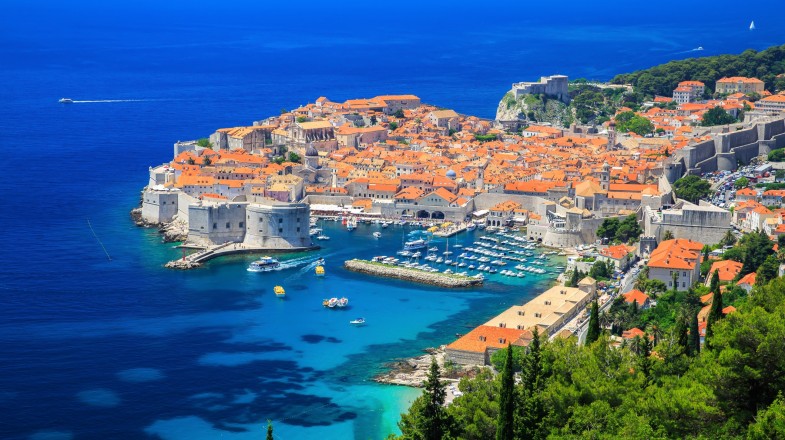
Croatia, nestled in the heart of Europe, is a country that has captivated the imagination of travelers for centuries. From its ancient roots to the modern-day splendors, Croatia boasts a rich tapestry of history, culture, and natural wonders. Let’s embark on a journey through this enchanting land, uncovering the secrets that make Croatia a unique and compelling destination.
1. Introduction to Croatia
Before we delve into the specifics, let’s acquaint ourselves with Croatia. Situated on the Adriatic Sea, Croatia shares borders with Slovenia, Hungary, Serbia, Bosnia and Herzegovina, and Montenegro. Its strategic location has played a pivotal role in shaping its history and culture.
2. Historical Background
Ancient Roots
Croatia’s history dates back to ancient times, with evidence of early human settlements. The Illyrians, Romans, and Byzantines have all left their mark on this land, contributing to its diverse historical narrative.
Medieval Period
The medieval period saw the rise of powerful city-states and the influence of the Croatian Kingdom. Intriguing tales of kings and queens unfolded, creating a foundation for the country’s unique identity.
Ottoman and Venetian Influence
The Ottoman and Venetian empires, with their contrasting cultures, shaped Croatia’s coastal regions. This blend of influences is still evident in the architecture, cuisine, and traditions of the area.
3. Geographical Wonders
Adriatic Coast
Croatia’s crown jewel is undoubtedly its stunning Adriatic coastline. Crystal-clear waters, picturesque islands, and historic towns create a mesmerizing backdrop for visitors seeking sun, sea, and culture.
Diverse Landscapes
Beyond the coast, Croatia surprises with its diverse landscapes. From the lush Plitvice Lakes to the rugged Dinaric Alps, the country offers a haven for nature enthusiasts and adventurers alike.
4. Cultural Riches
Art and Architecture
Croatia’s cultural heritage is showcased in its art and architecture. From Roman amphitheaters to medieval cathedrals, each structure tells a story of the people and events that shaped the nation.
Traditional Cuisine
No exploration of Croatia is complete without indulging in its traditional cuisine. Influenced by Mediterranean and Central European flavors, Croatian dishes are a delightful fusion of tastes and textures.
5. Tourism Boom
Popular Destinations
In recent years, Croatia has experienced a tourism boom. Dubrovnik, Split, and Plitvice Lakes National Park are among the most sought-after destinations, attracting millions of visitors annually.
Unique Experiences
Beyond the iconic landmarks, Croatia offers unique experiences, such as island hopping along the Dalmatian coast or exploring the historic city of Zagreb. These experiences provide a deeper understanding of the country’s charm.
6. Language and Traditions
Unique Language Features
The Croatian language, with its intricate nuances, reflects the country’s rich cultural tapestry. Understanding the linguistic subtleties adds a layer of appreciation for the local way of life.
Celebrations and Festivals
Croatians are known for their vibrant celebrations and festivals. From the lively Carnival in Rijeka to the traditional Alka Knights’ Tournament, these events showcase the pride and joy of the Croatian people.
7. Sporting Heritage
Football Dominance
Croatia’s prowess in football has gained global recognition. The national team’s success in international competitions has not only brought pride to the country but has also united its people.
Other Sporting Achievements
Beyond football, Croatia has excelled in various sports, producing world-class athletes. From tennis champions to Olympic medalists, the country’s sporting heritage is as diverse as its landscapes.
8. Economic Landscape
Transition from Communism
The transition from communism to a market-oriented economy in the 1990s marked a significant turning point for Croatia. This period of change laid the groundwork for the country’s economic evolution.
EU Membership Impact
Croatia’s accession to the European Union in 2013 opened new doors for economic development and international collaboration. However, it also posed challenges that the country had to navigate.
9. Challenges Faced
War in the 1990s
The 1990s were marred by the Yugoslav Wars, and Croatia faced its share of hardships. Rebuilding the nation and healing the wounds of war became paramount for its people.
Economic Struggles
Despite progress, economic challenges persist. High unemployment rates and regional disparities are issues that Croatia continues to address in its ongoing quest for stability.
10. Croatian Identity
National Pride
Croatians take immense pride in their identity. The resilience displayed during challenging times has become a cornerstone of the national character, fostering a strong sense of unity.
Identity in the EU
As a member of the EU, Croatia balances its national identity with the responsibilities and benefits of European integration. This delicate equilibrium shapes the country’s role on the international stage.
11. Future Prospects
Economic Growth
With ongoing reforms and strategic initiatives, Croatia aims for sustained economic growth. Investments in innovation, tourism, and infrastructure play a crucial role in shaping the nation’s future.
Tourism Trends
As a tourism hotspot, Croatia adapts to evolving trends. Sustainable tourism practices and a focus on authentic experiences are anticipated to drive the industry forward.
12. Sustainable Practices
Environmental Initiatives
Croatia prioritizes environmental conservation. Initiatives such as marine protection projects and sustainable tourism practices aim to preserve the country’s natural beauty for future generations.
Cultural Preservation
In tandem with environmental efforts, there is a concerted focus on preserving cultural heritage.

